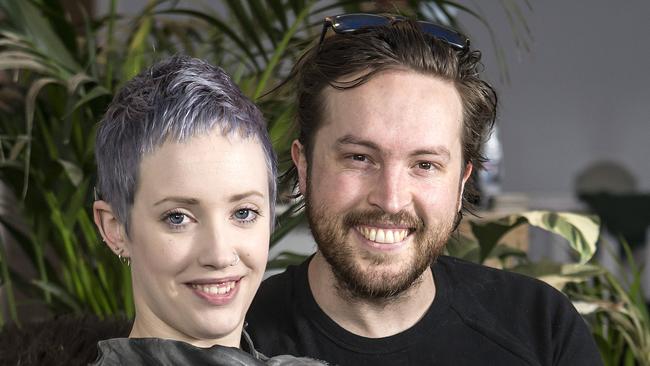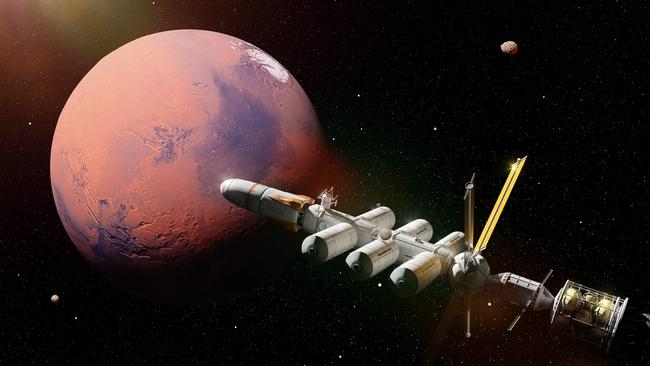Couple dreams of life on Mars, but they don’t want to be at the head of the queue
A Melbourne couple is determined to live on Mars one day, but they say they don’t want to be pioneers on the red planet. What’s holding them back?

VIC News
Don't miss out on the headlines from VIC News. Followed categories will be added to My News.
Melbourne futurist Will Dayble and his neuroscientist partner Mai Raabus hope to be among the first humans to live on Mars — but don’t want to be the first.
Will and Mai say they recognise the often fatal consequences humans face when conquering extreme frontiers, but once the technology is tested and mastered a greater chance for survival and safety is reached.
“People comfortable with going to Mars are comfortable with uncertainty,” Will said.
HOW TO INVEST IN THE SPACE ECONOMY
SPACEX LAUNCHES RESUPPLY MISSION
BLUE ORIGIN TEST LAUNCHES SPACE VEHICLE
“Preparation for Mars remains the same: health, wealth and wisdom — health to survive and thrive in a difficult environment, brute wealth to afford the costs of going, and the wisdom to do it all sensibly.”
Currently, Virgin Galactic founder Sir Richard Branson, Tesla motors and SpaceX chief Elon Musk and Amazon.com founder Jeff Bezos are among those pouring hundreds of millions of dollars into realising the dream of commercial travel into space.
The SpaceX manned Mars mission was initially hoped to be launched in 2024, but the likely time frame has now stretched out.

“Most Mars fans are okay with mission dates being a moving target — everything will shift dramatically as we learn new things,” Will said.
Will, a social entrepreneur and founder of The Fitzroy Academy, said the selection of candidates for any future Mars colonisation should be wide-ranging, despite the physical challenges.
“For any realistic habitation of Mars we’ll need lots of people, with diverse skills. Selection will likely be ‘has money and useful skills, is good with people’ by the time post-pioneer, early adopter travellers like us are on board.
“Yes there’ll be a few heroes at the start, but civilisations are built by settlers, not pioneers.
“To me, this all gets much more interesting after the first few hundred human pioneers, after the moon base, after the reality TV first dozen trips.
“There’s near insurmountable challenges around bone density, calorie intake, stress, and eye health, but humans have a good track record with ‘near insurmountable’.
“I’m less worried about the physical problems of Mars habitation than I am about people breaking things on Earth, and sucking resources away from endeavours like going to Mars.”


